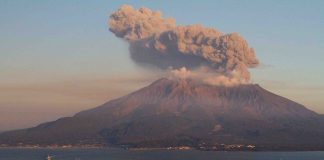With war rumbling in the East and the Strait of Hormuz threatened with closure, Europe’s foreign ministers convene in Brussels today in a session that looks more like a crisis council than a routine diplomatic gathering.
The stakes could hardly be higher: Ukraine is once again under a barrage of Russian missile attacks, while the Middle East teeters on the brink of regional conflagration following U.S. airstrikes on Iranian nuclear facilities.
The EU’s response, however, remains characteristically hesitant—struggling to present a united front amid conflicting national priorities and the increasingly fragile geopolitical architecture of the post-Cold War order.
At the top of the agenda will be the question of sanctions. Brussels is preparing its latest sanctions package against Moscow, with early drafts targeting Russian LNG exports and high-tech imports. Baltic states, Poland, and the Netherlands pushed for swift adoption, arguing that the Kremlin must face ever-tightening consequences for its relentless assault on Ukraine. But resistance, notably from Hungary and Slovakia, has complicated efforts to pass the measures unanimously.
Germany, while notionally supportive, remains skittish. Chancellor Merz’s coalition is under pressure from domestic industries already battered by soaring energy costs. A senior German official, speaking off the record, warned that further measures must be “carefully calibrated” to avoid self-inflicted harm.
France struck a similarly cautious note. Foreign Minister Stéphane Séjourné emphasised the need for “strategic coherence,” warning against “reactionary policymaking” that could escalate tensions without achieving real deterrence.
But with Russian forces reportedly advancing again in the Kharkiv and Donetsk regions, patience in Eastern Europe is running out. One diplomat bluntly remarked: “We talk while they bomb. That’s our tragedy.”
Beyond Ukraine, the closure of the Strait of Hormuz following the U.S. strikes on Iran has sent shockwaves through European capitals. The strait, a chokepoint through which nearly a fifth of global oil flows, has become a theatre of high-stakes brinkmanship. Iran, furious at what it calls an “act of war,” has deployed Revolutionary Guard naval units and threatened to target Western shipping.
Britain, France, and Germany—still nominally parties to the moribund Iran nuclear deal—now face the dilemma of how to respond to Washington’s unilateral military action. The UK has already raised its maritime threat level in the Gulf, while France dispatched a frigate to reinforce its naval presence in the region.
In Brussels, officials spoke cautiously of a “need for de-escalation.” But privately, there is growing alarm at Europe’s lack of leverage.
Yet few in the room will be under any illusions about Europe’s capacity to steer events. “We are caught between an unpredictable America and an unmanageable Middle East,” said one veteran EU diplomat before the meeting. “This is what strategic autonomy looks like when it’s still just a slogan.”
Economic concerns loomed large as well. Crude prices surged above $105 per barrel overnight, triggering fears of a fresh inflationary spiral. European airlines have begun rerouting flights to avoid the Gulf, while insurers are already hiking premiums for vessels transiting the region. Italy’s foreign minister Antonio Tajani warned that Europe “must prepare for a prolonged energy shock.”
Meanwhile, behind closed doors, discussions reportedly touched on military readiness. A growing number of EU states are lobbying for the establishment of a rapid deployment force, a perennial idea that has gained urgency in light of NATO’s overstretch and America’s uncertain appetite for further involvement.
The mood in Brussels today is sombre, even resigned. A continent that once believed it had transcended history now finds itself once again at the mercy of it.



